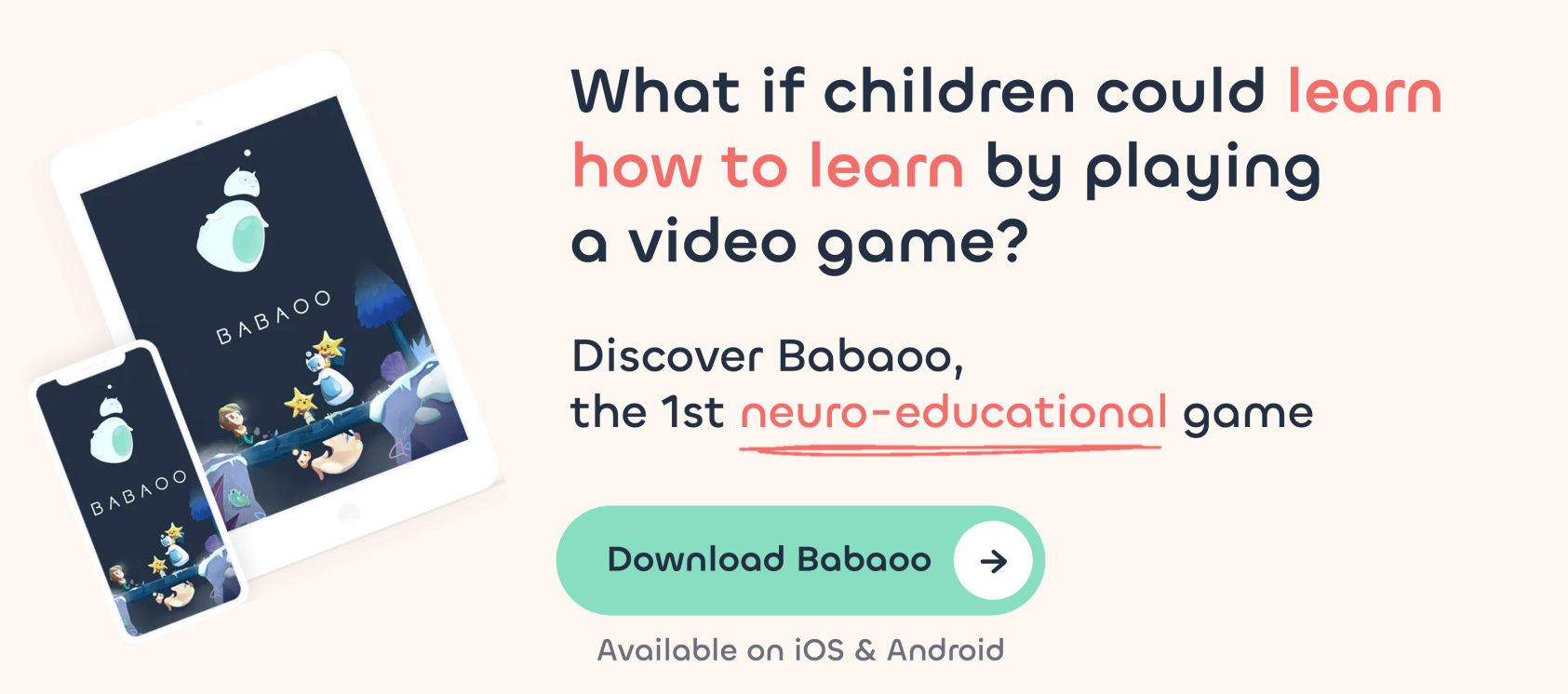
Understanding your child better thanks to neuroscience

Does your little one regularly take you by surprise? Shouting, crying, tantrums, kicking… Do you sometimes wonder whether he might have behavioural problems? Rest assured: there’s probably nothing to worry about! We now know that these excessive reactions are an integral part of a child’s development. And there’s a good chance that your adult attitude has surprised him more than once too! But what if it’s all a question of perspective?
Find out how neuroscience can help you better understand your child. Babaoo Mag has the facts for you! 💡
Children’s brains: immaturity and development
Subject to real emotional storms, our children are not easy to keep up with! Between tenderness and irritation, it’s not always easy to know what foot to step on as a parent…
Angel or demon? Science has decided!
Children have an ability that adults seem to have lost along the way: they can go from laughter to tears, and vice versa, in the blink of an eye! So much so that it’s sometimes difficult not to reduce their emotional outpourings to mere whims!
So, angels or demons? 😈 It’s fair to ask…
Neuroscientists are categorical: no, our offspring don’t improvise themselves as bullies for the sake of messing with us! They are simply not yet capable of managing their emotions. In fact, neuroscience research has shown that at the early childhood stage, the brain is still developing and is not as mature as that of an adult.
They don’t want to can’t!
Uncontrolled fears, immense grief and explosive anger… 💣 So our little monsters weren’t born with an innate gift for comedy! In the vast majority of cases, they don’t suffer from any behavioural pathology either. These behaviours, exaggerated in our adult eyes, are in fact a reflection of the immaturity of their orbitofrontal cortex: the area of the brain responsible for regulating our impulses, which only begins to mature between the ages of 5 and 7. Have you too had to deal with the “terrible two” (or “two-year crisis”)? 🥵 Now you have an explanation!
As psychiatrist Catherine Gueguen points out, these discoveries in neuroscience are fundamental: by understanding how our child’s brain works, we could be in a better position to know what to do to better support them in their development!
But also what we should avoid…
Punitive education: a blessing in disguise!
For a long time, we thought that being authoritative was the best way to educate children. After all, it’s a well-known fact that if you don’t give them a framework and set them limits, they’re the ones who’ll boss you around! Yes, but…
Punishment or abandonment?
Imagine coming home after a long day at work. You’re at the end of your tether: your boss is putting more and more pressure on you and the atmosphere between colleagues is deteriorating… As soon as you get home, you can’t contain yourself any longer: you burst into tears looking for support. And then all your partner can say to you is: “Stop being so dramatic, you’re tiring me out. Go to your room!
How do you think you’d feel? You’d probably feel the same as 5-year-old Sacha, just sent to the corner for being a “naughty little boy”: a mixed feeling of humiliation, shame and rejection. The difference? You’re an adult. So you might put the seriousness of the situation into perspective. Sacha, on the other hand, can’t: his brain is not yet sufficiently mature, and he is unable to regulate his emotions on his own.
Harmful consequences
Rebecca Waller, a researcher at Oxford University, has reviewed 30 studies on the impact of strict, punitive education. The result is clear: this type of education produces the opposite of the desired effect! Instead of becoming “well-behaved teenagers who are comfortable in their own shoes”, our children become insensitive, less empathetic, aggressive and anxious (Rebecca Waller (2013), Clinical Psychology Review, 33: 593-608. Oxford).
Let’s be clear, however, scientists are not advocating that we let our little protégés walk all over us! As you can imagine, turning them into capricious despotic rulers is definitely not doing them any favours… But then, what should we do? 😓
What kind of education should we adopt? How do you make children happy to live, sociable, enterprising, while making sure you instil the right values in them? Fortunately, affective and social neurosciences are giving us a few pointers to follow to help little human beings flourish! 🍀
✏ Note: Psst! Stop torturing your mind by thinking back to the time you lost your patience and got carried away. It’s happened to all of us… The best way to deal with it is to do your best. So keep at it 😉
The keys to healthy child development
We’re now certain that Charlotte, aged 4, who cries because her Daddy refused to buy her an ice cream, “isn’t exaggerating”, “isn’t being ridiculous”, or “isn’t acting out”. In reality, she is the first victim of her emotions. The real question, then, is how to help her overcome what her childlike brain is making her experience as a real tragedy…
Creating a favourable environment
Did you know that our brains reach a peak of neuro-plasticity between the ages of 0 and 6? In young children, several million neuronal connections are reorganised every second! 🧠 The result? Children have a tenfold capacity to absorb everything that’s going on around them. That’s why the environment in which they grow up, and therefore also the way we react to their moods, play a major role in their development.
Studies show that what their brains need to grow properly is… lots of love and affection! So no, maintaining a certain modesty with our little ones will not make them more independent adults – quite the contrary! It’s generally the children who have been consoled, cuddled and pampered in a secure and caring home who, in the long run, manage best to look after themselves. So you know what you have to do! 🥰
Kisses and cuddles are all very well! But how do you react to Charlotte whose world is falling apart because she’s not getting her pistachio ice cream? We bring out the heavy artillery: empathy, patience and kindness.
Support and help your child grow
Rather than scolding your child, punishing him or making him feel how inappropriate his behaviour is, stay calm, listen to him and teach him to put into words the emotions that are running through him. Because while a developing child obviously needs clear, stable and well-defined limits, we now know that empathy, support and encouragement play a fundamental role in the overall development of a child’s brain.
Thanks to the educational framework you build up, but also to the trust you show them, your little ones will learn to put things into perspective and understand that, even without their favourite ice cream, their world hasn’t collapsed. After all, managing your emotions is like anything else – you have to learn!
Babaoo recap!
A child who panics quickly when unfamiliar, bursts into tears when frustrated or throws a tantrum when upset is not usually difficult, temperamental or capricious.
And what if he were simply a child? His brain, which is constantly developing, has not yet reached maturity and his ability to manage his emotions has yet to evolve. Today, he doesn’t know how, or rather, he doesn’t YET know how! Until tomorrow: support, patience and kindness!
You may also be interested in these articles



